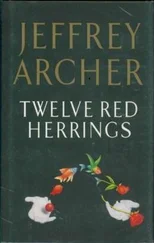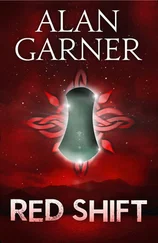Alan Bradley - A Red Herring Without Mustard - A Flavia de Luce Novel
Здесь есть возможность читать онлайн «Alan Bradley - A Red Herring Without Mustard - A Flavia de Luce Novel» весь текст электронной книги совершенно бесплатно (целиком полную версию без сокращений). В некоторых случаях можно слушать аудио, скачать через торрент в формате fb2 и присутствует краткое содержание. Жанр: Старинная литература, на русском языке. Описание произведения, (предисловие) а так же отзывы посетителей доступны на портале библиотеки ЛибКат.
- Название:A Red Herring Without Mustard: A Flavia de Luce Novel
- Автор:
- Жанр:
- Год:неизвестен
- ISBN:нет данных
- Рейтинг книги:4 / 5. Голосов: 1
-
Избранное:Добавить в избранное
- Отзывы:
-
Ваша оценка:
- 80
- 1
- 2
- 3
- 4
- 5
A Red Herring Without Mustard: A Flavia de Luce Novel: краткое содержание, описание и аннотация
Предлагаем к чтению аннотацию, описание, краткое содержание или предисловие (зависит от того, что написал сам автор книги «A Red Herring Without Mustard: A Flavia de Luce Novel»). Если вы не нашли необходимую информацию о книге — напишите в комментариях, мы постараемся отыскать её.
A Red Herring Without Mustard: A Flavia de Luce Novel — читать онлайн бесплатно полную книгу (весь текст) целиком
Ниже представлен текст книги, разбитый по страницам. Система сохранения места последней прочитанной страницы, позволяет с удобством читать онлайн бесплатно книгу «A Red Herring Without Mustard: A Flavia de Luce Novel», без необходимости каждый раз заново искать на чём Вы остановились. Поставьте закладку, и сможете в любой момент перейти на страницу, на которой закончили чтение.
Интервал:
Закладка:
For weeks afterwards it was “Carl-this” and “Carl-that” with Feely prattling endlessly on about the muddy Mississippi, its length, its twists and bends, and how to spell it properly without making a fool of oneself. We were given the distinct impression that she had personally conceived and executed the formation of that great river, with God standing helplessly on the sidelines, little more than a plumber’s assistant.
I smiled at the thought.
It was at that precise instant that I heard it: a metallic click .
For a couple of heartbeats, I stood perfectly still, trying to decide from which direction it had come.
The drawing room , I thought, and immediately began tiptoeing in that direction. In my bare feet, I was able to move in perfect silence, keeping an ear out for the slightest sound. Although there are times when I have cursed the painfully acute sense of hearing I’ve inherited from Harriet, this was not one of them.
As I moved at a snail’s pace along the corridor, a crack of light suddenly appeared beneath the drawing-room door. Who could be in there at this time of night ? I wondered. Whoever it was, it certainly wasn’t a de Luce.
Should I call for help, or tackle the intruder myself?
I seized the knob, turned it ever so slowly, and opened the door: a foolhardy action, I suppose, but after all, I was in my own home. No sense in letting Daffy or Feely take all the credit for catching a burglar.
Accustomed to the darkness, my eyes were somewhat dazzled by the light of an ancient paraffin lamp that was kept for use during electrical interruptions, and so at first I didn’t see anyone there. In fact, it took a moment for me to realize that someone—a stranger in rubber boots—was crouched by the fireplace, his hand on one of the brass firedogs that had been cast into the shape of foxes.
The whites of his eyes flashed as he looked up into the mirror and saw me standing behind him in the open doorway.
His moleskin coat and his scarlet scarf flared out as he came to his feet and spun quickly round.
“Crikey, gal! You might have given me a heart attack!”
It was Brookie Harewood.
 FOUR
FOUR 
THE MAN HAD BEEN drinking. I noticed that at once. Even from where I stood I could detect the smell of alcohol—that and the powerful fishy odor that accompanies a person who wears a creel with as much pride as another might wear a kilt and sporran.
I closed the door quietly behind me.
“What are you doing here?” I asked, putting on my sternest face.
Actually, what I was thinking was that Buckshaw, in the small hours of the morning, was becoming a virtual Paddington Station. It wasn’t more than a couple of months since I had found Horace Bonepenny in a heated nocturnal argument with Father. Well, Bonepenny was now in his grave, and yet here was another intruder to take his place.
Brookie raised his cap and tugged at his forelock—the ancient signal of submission to one’s better. If he were a dog, it would be much the same thing as prostrating himself and rolling over to expose his belly.
“Answer me, please,” I said. “What are you doing here?”
He fiddled a bit with the wicker creel on his hip before he replied.
“You caught me fair and square, miss,” he said, shooting me a disarming smile. I noticed, much to my annoyance, that he had perfect teeth.
“But I didn’t mean no harm. I’ll admit I was on the estate hoping to do a bit of business rabbitwise. Nothing like a nice pot of rabbit stew for a weak chest, is there?”
He knocked his rib cage with a clenched fist and forced a cough that, since I had done it so often myself, didn’t fool me for an instant. Neither did his fake gamekeeper dialect. If, as Mrs. Mullet claimed, Brookie’s mother was a society artist, he had probably been schooled at Eton, or some such place. The grubbing voice was meant to gain him sympathy. That, too, was an old trick. I had used it myself, and because of that, I found myself resenting it.
“The Colonel’s no shooter,” he went on, “and all the world knows that for a fact. So where’s the harm in ridding the place of a pest that does no more than eat your garden and dig holes in your shrubbery? Where’s the harm in that, eh?”
I noticed that he was repeating himself—almost certainly a sign that he was lying. I didn’t know the answer to his question, so I remained silent, my arms crossed.
“But then I saw a light inside the house,” he went on. “ ‘ Hullo !’ I said to myself, ‘What’s this, then, Brookie ? Who could be up at this ungodly hour?’ I said. ‘Could someone be sick?’ I know the Colonel doesn’t use a motorcar, you see, and then I thought, ‘What if someone’s needed to run into the village to fetch the doctor?’ ”
There was truth in what he said. Harriet’s ancient Rolls-Royce—a Phantom II—was kept in the coach house as a sort of private chapel, a place that both Father and I went—though never at the same time, of course—whenever we wanted to escape what Father called “the vicissitudes of daily life.”
What he meant, of course, was Daffy and Feely—and sometimes me.
Although Father missed Harriet dreadfully, he never spoke of her. His grief was so deep that Harriet’s name had been put at the top of the Buckshaw Blacklist: things that were never to be spoken of if you valued your life.
I confess that Brookie’s words caught me off guard. Before I could frame a reply he went on: “But then I thought, ‘No, there’s more to it than that. If someone was sick at Buckshaw there’d be more lights on than one. There’d be lights in the kitchen—someone heating water, someone dashing about …’ ”
“We might have used the telephone,” I protested, instinctively resisting Brookie’s attempt to spin a web.
But he had a point. Father loathed the telephone, and allowed it to be used only in the most extreme emergencies. At two-thirty in the morning, it would be quicker to cycle—or even run!—into Bishop’s Lacey than to arouse Miss Runciman at the telephone exchange and ask her to ring up the sleeping Dr. Darby.
By the time that tedious game of Button, Button, Who’s Got the Button had been completed, we might all of us be dead.
As if he were the squire and I the intruder, Brookie, his rubber-booted feet spread wide and his hands clasped behind him, had now taken up a stance in front of the fireplace, midway between the two brass foxes that had belonged to Harriet’s grandfather. He didn’t lean an elbow on the mantel, but he might as well have.
Before I could say another word, he gave a quick, nervous glance to the right and to the left and dropped his voice to a husky whisper: “ ‘ But wait, Brookie, old man, ’ I thought. ‘Hold on, Brookie, old chum. Mightn’t this be the famous Gray Lady of Buckshaw that you’re seeing ?’ After all, miss, everyone knows that there’s sometimes lights seen hereabouts that have no easy explanation.”
Gray Lady of Buckshaw? I’d never heard of such an apparition. How laughably superstitious these villagers were! Did the man take me for a fool?
“Or is the family specter not mentioned in polite company?”
Family specter? I had the sudden feeling that someone had tossed a bucket of ice water over my heart.
Could the Gray Lady of Buckshaw be the ghost of my mother, Harriet ?
Brookie laughed. “Silly thought, wasn’t it?” he went on. “No spooks for me, thank you very much! More likely a housebreaker with his eye on the Colonel’s silver. Lot of that going on nowadays, since the war.”
Читать дальшеИнтервал:
Закладка:
Похожие книги на «A Red Herring Without Mustard: A Flavia de Luce Novel»
Представляем Вашему вниманию похожие книги на «A Red Herring Without Mustard: A Flavia de Luce Novel» списком для выбора. Мы отобрали схожую по названию и смыслу литературу в надежде предоставить читателям больше вариантов отыскать новые, интересные, ещё непрочитанные произведения.
Обсуждение, отзывы о книге «A Red Herring Without Mustard: A Flavia de Luce Novel» и просто собственные мнения читателей. Оставьте ваши комментарии, напишите, что Вы думаете о произведении, его смысле или главных героях. Укажите что конкретно понравилось, а что нет, и почему Вы так считаете.












